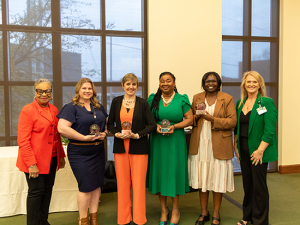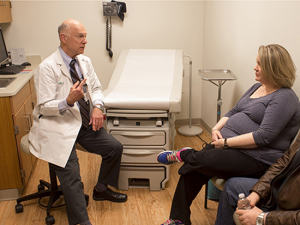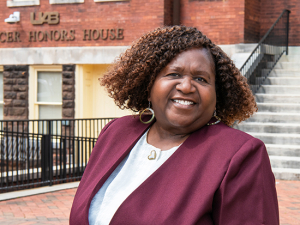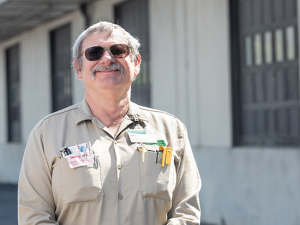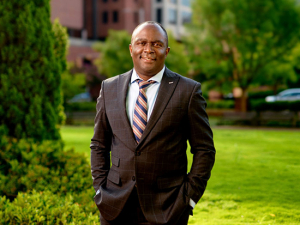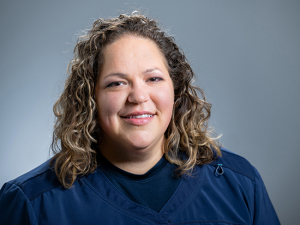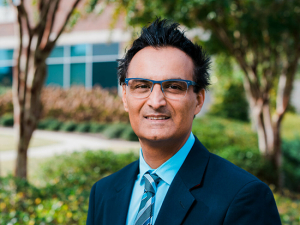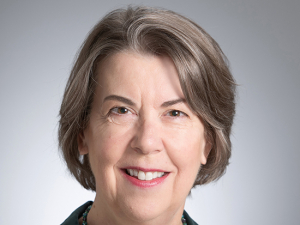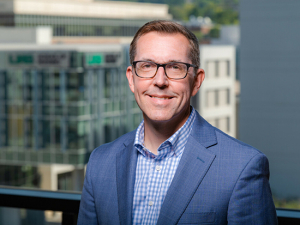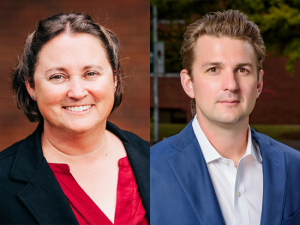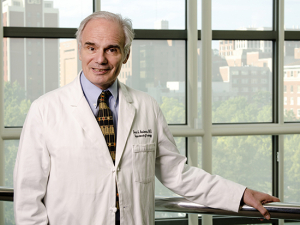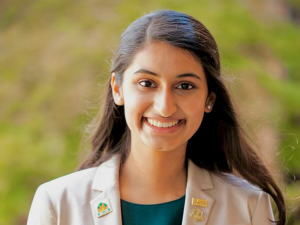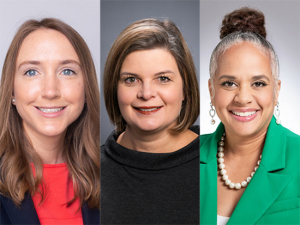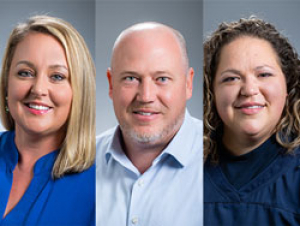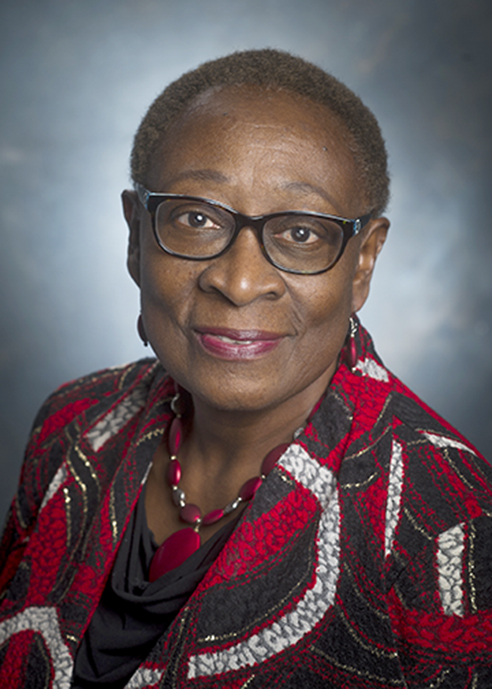 Pauline Jolly, Ph.D., professor in public health in the Department of Epidemiology and director of the UAB Minority Health International Research Training program, has won the 2014 Ellen Gregg Ingalls/UAB National Alumni Society Award for Lifetime Achievement in Teaching.
Pauline Jolly, Ph.D., professor in public health in the Department of Epidemiology and director of the UAB Minority Health International Research Training program, has won the 2014 Ellen Gregg Ingalls/UAB National Alumni Society Award for Lifetime Achievement in Teaching.
“This award serves as acknowledgement that I have been successful in fulfilling my calling in life, which is to teach,” Jolly said. “It reassures me that I have devoted my life to the right cause, that of helping students acquire relevant information and practical applications that allow them to solve existing, anticipated and unforeseen problems — both domestically and globally — thereby improving the lives of others.”
Jolly has educated and motivated UAB students for 23 years, teaching undergraduate, graduate, doctoral and postdoctoral courses along the way. Jolly joined UAB in 1991 as assistant professor and was promoted to associate professor in 1997 and professor in 2003.
“I have been privileged to work with some of the brightest people dedicated to student achievement and improvement in health, and I have been afforded ample opportunities to pursue my own intellectual ideas and initiatives to create beneficial local and global impacts in health,” Jolly said.
During her career, Jolly has held several leadership positions. From 2003 to 2007, she was director of the Doctor of Public Health Program in International Health and faculty coordinator for the Peace Corps Master’s International Program in the School of Public Health.
She is a preceptor/mentor for the UAB Cancer Research Experiences for Students program, which is funded by the National Cancer Institute. The program aims to motivate UAB graduate students in medicine, public health or other health professions to pursue careers in cancer research.
Jolly is a professor, researcher, mentor, director and a dedicated advisor to 109 students pursuing a master of public health/master of science in public health plus 20 doctoral and six post-doctoral students. In her career, she has served on 28 doctoral advisory/dissertation committees.
“Many of her masters and doctoral graduates hold prominent positions at the CDC, NIH, the Bill and Melinda Gates Foundation, private companies, universities and international governments,” said Muktar Aliyu, M.D., Dr.P.H., a graduate of UAB. “A prominent example of her mentees is Dr. Faisal Shuaib, who is currently overseeing Ebola outbreak-control measures in Nigeria as national incident commander. Faisal — as is the case with most of her students — often attributes his extraordinary career trajectory to Dr. Jolly’s guidance and mentorship.”
‘What would Dr. Jolly do?’
Jolly receives positive teaching evaluations from her students every year, which is evident in her frequent nominations for and award of the President’s Award for Excellence in Teaching in 2007. She was a runner-up in 2003 and 2005.
Jolly has received the National Faculty Award of the Phi Beta Delta Honor Society for International Scholars, the Distinguished Educator Award from the Birmingham Chapter of the United Nations Association and the UAB Graduate Dean’s Award for Excellence in Mentorship.
“She has never said ‘no’ to a student,” said Melissa Galvin, Ph.D., retired UAB professor. “In an ever-demanding research-based culture such as UAB, teaching is often compromised; yet Dr. Jolly has continued to have a robust portfolio while maintaining a strong commitment to teaching.”
“Her willingness to take students under her wing, not only in the classroom and lab, but also in developing countries, demonstrates her strong commitment to inspiring change not only in the students, but in lives of those less fortunate,” Galvin said.
Faisal Shuaib, M.D., Dr.P.H., a Bill and Melinda Gates Foundation funded Public Health Consultant to the Nigerian Federal Ministry of Health, said Jolly’s mentorship helped him easily transition to the professional world.
| “In some of the most challenging situations, and when I am confronted with problems for which I have no answers, I would ask myself ‘what would Dr. Jolly do in these circumstances?’” |
Shuaib said his consultant role led him to manage the Ebola virus disease outbreak. He said the field experts Jolly invited to class helped prepare him to manage the outbreak because they grounded the theoretical aspects in real-world experiences. That knowledge, he said, prepared him to be on the cutting edge of new ideas and methods of disease prevention and control.
“In some of the most challenging situations, and when I am confronted with problems for which I have no answers, I would ask myself ‘what would Dr. Jolly do in these circumstances?’” Shuaib said. “My image of her calm professional stance, meticulousness and emphasis on accountability helped me in no small measure to think of ways to direct the Ebola Emergency Operation Center during the height of the crisis in Nigeria’s outbreak-response activities to this deadly viral disease.”
“These successful students (including Shuaib) reflect positively on UAB and show that the university provides exceptional training,” Jolly said.
‘Highly rewarding’
Jolly contributes to that training as program director for the UAB Minority Health International Research Training program funded by the National Institute of Health since 1995. She has successfully obtained funding for the program for the past 19 years, and it is funded to 2018.
| “MHIRT students have been selected from a variety of social and cultural backgrounds, and many had never traveled abroad or were the first in their family to go to college. It is amazing and highly rewarding to see how these students adjust to working and learning in a foreign environment and expand their worldview.” |
The MHIRT program trains 12-14 undergraduate, graduate and health professions students each year in public health or biomedical research at renowned international sites in Asia, Africa and the Caribbean. Jolly oversees trainee selection, placement, research and living activities, hosts MHIRT foreign mentors and organizes seminars in the School of Public Health by mentors and trainees. Since it’s creation, the program has trained 166 undergraduate, 66 graduate, five doctoral and 22 health professions students.
“MHIRT students have been selected from a variety of social and cultural backgrounds, and many had never traveled abroad or were the first in their family to go to college,” Jolly said. “It is amazing and highly rewarding to see how these students adjust to working and learning in a foreign environment and expand their worldview.”
Jolly’s research in the MHIRT program include the study of the prevalence, risk factors and prevention of HIV and other sexually transmitted infections, the association of malaria and sickle-cell disease with adverse pregnancy outcomes, genetics of hypertension in Mayans and more. The health problems studied are identified as priority by health officials in the different countries, and data generated from these studies are provided to the responsible public health officials for use in policy decisions related to disease prevention and improvement of health-care services for the people.
“My teaching philosophy is based on the principle that sharing information and educational resources will help equip a greater number of people with the knowledge and competencies needed to make the world a better place for all,” Jolly said.
